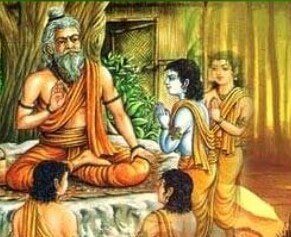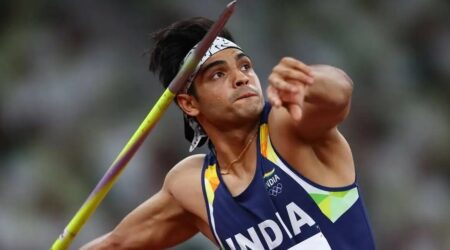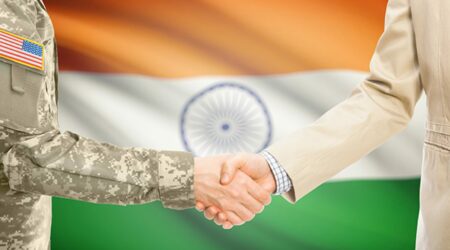By Bhaswati Bhattacharya
Ambitious entrepreneurs in the ayurveda sector are generally trained in engineering, medicine, or modern science and business. They embrace the economic models that calculate profits based on currency, not on impact on environment, social human capital, or ability to self-heal. Entrepreneurs who are transactional look only at parameters of currency, scale growth, volume, sales transactions, mergers and acquisitions, and popularity as judged by media or business pundits. Their values focus on material wealth. They do not accurately calculate the forces that move those physical elements. Can artificial intelligence assess Intimacy?
Scale-ability is a common measure of success today. Ayurveda, however, has witnessed thousands of generations and dynasties and civil codes of commerce. Its wisdom distills the wisdom of thousands of generations, and describes the best of what works for the propagation of human health. Several tenets are fundamental to Ayurveda, largely ignored by modern large-scale-oriented efforts today.
Tenet 1. Knowing the self and being able to propagate one’s own health is the main governance each person must master. Without it, being CEO of a company does not lead to a wholesome life, known as hita in Ayurveda.
Tenet 2. Understanding the power of mental and emotional intimacy as a necessary skill is not prioritized in business. Relationships are transactional, temporary, and lacking in transparency. Intimacy is missing in their personal lives with their children, spouses, parents. Adhyatmika – looking inward – is missing and unvalued, as schools are secular and do not teach education to be personal. The teaching of intimacy with one’s own mind-body-senses-soul is missing in education, at home, at school, at work. Who invests in the development of the whole person?
Tenet 3. Ayurveda requires people to know how to resonate with their inner self. This includes patients, physicians, therapists, and medicine-makers Without that skill, patients cannot heal, as they receive medicine laced with complicated subtle energies. When people resist the path of subtle energies, and prefer pills to changing their thoughts, they lose the path of Ayurveda. The professionals who devise medicines that conveniently abstain from the journey inside create chemical medicines with no lifeforce to heal the patient.
The road to intimacy in Ayurveda is best typified by the indelible model of true guru-shishya parampara. While many criticize it or demand that the concept of guru is extinct because they themselves have not seen it, the reality is that the blind cannot see something they do not believe.
Intimacy involves trust, the ability to be vulnerable, and the ability to be seated in the self so confidently and without shame that others can see. With this intimacy, and only when it is present, can transformational healing energy be transmitted. The student suddenly understands because s/he is transparent to show where his obstacles of understanding are, and the guru transforms the information to explain a bridge over the obstacle. No classroom can achieve this, as each person’s obstacles are different.
The current reforms in Ayurvedic education ignore the time-old truth that the first guru is the mother, and that mothers are the best teachers of permanent habits that provide wisdom to their children for a lifetime. If they understood, then the committee of NCISM would be filled with at least 50% mothers who have raised their own children without servants. This intimacy that a mother gives her child is the intimacy to feel safe while learning, to make mistakes without humiliating penalty, to heal while learning. This is the intimacy of the guru also. It cannot be scaled, and it cannot be maintained in a classroom. The proof of this is the return to the apprenticeship model in the best schools of the health professions.
Intimacy between two people engaged in vidya allows connection of lifeforce and experiential understanding of subtle energy and the deeper meanings that connect concepts and molecules. Called by many names and terms, subtle energies are those that are not appreciated or perceived by the ignorant. Thus the modern medical world ignores modern physics and modern chemistry and also Ayurveda, claiming to know real science.
Ayurveda discusses a myriad of approaches for healing, from chemical-physical medicines and procedures of complicated intricate surgeries, to subtle energy work using bhasmas or gemstones, mantra and marma. Those who are not practicing Ayurveda, not interacting with patients to understand the transformative potential of 1:1 contact cannot understand the power of intimacy and its importance for learning how to heal.
Intimacy is thus not scale-able. Attempts to amplify medicine-making, production of vaidyas, or panchakarma therapies for optimizing profit diminishes the quality of the end-product. The losers conclude that ayurveda does not work…

The South Asia Times Columnist Dr. Bhaswati Bhattacharya is a Fulbright Specialist 2018‐2023 in Public Health and Clinical Asst Professor of Medicine, Weill Cornell Medical College, New York. Her bestselling book Everyday Ayurveda is published by Penguin Random House.
[email protected]vard.edu
/ www.drbhaswati.com










